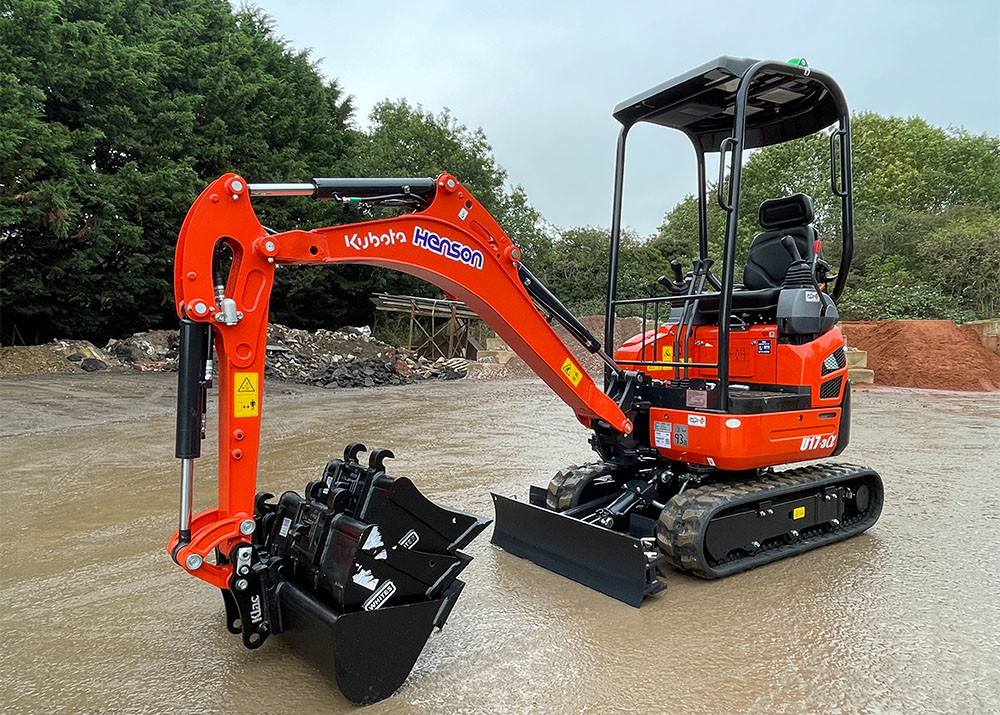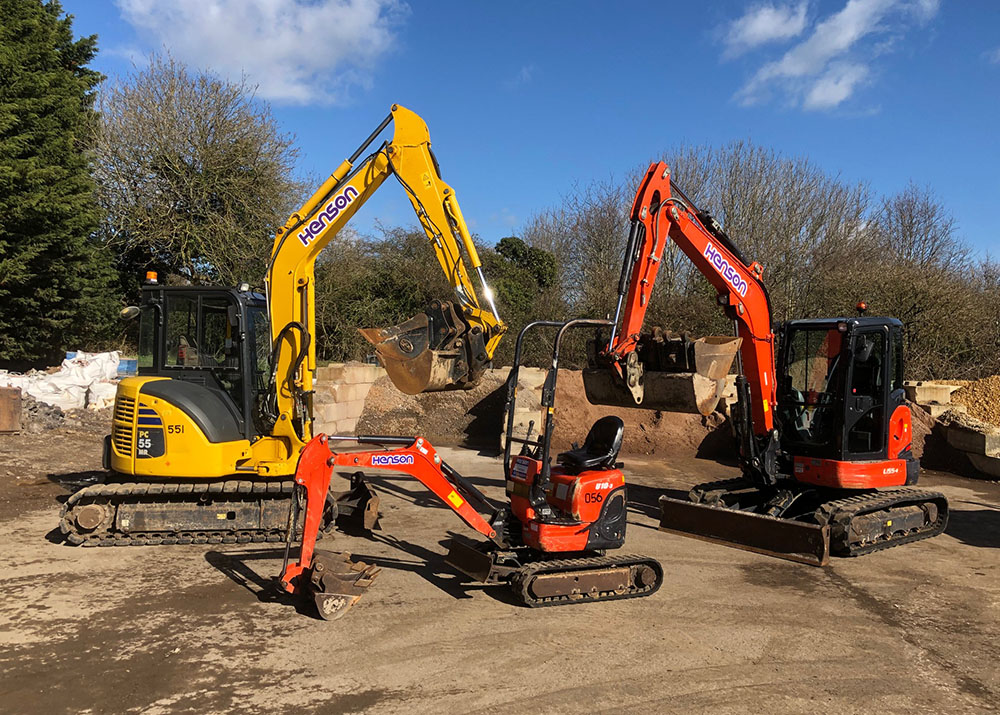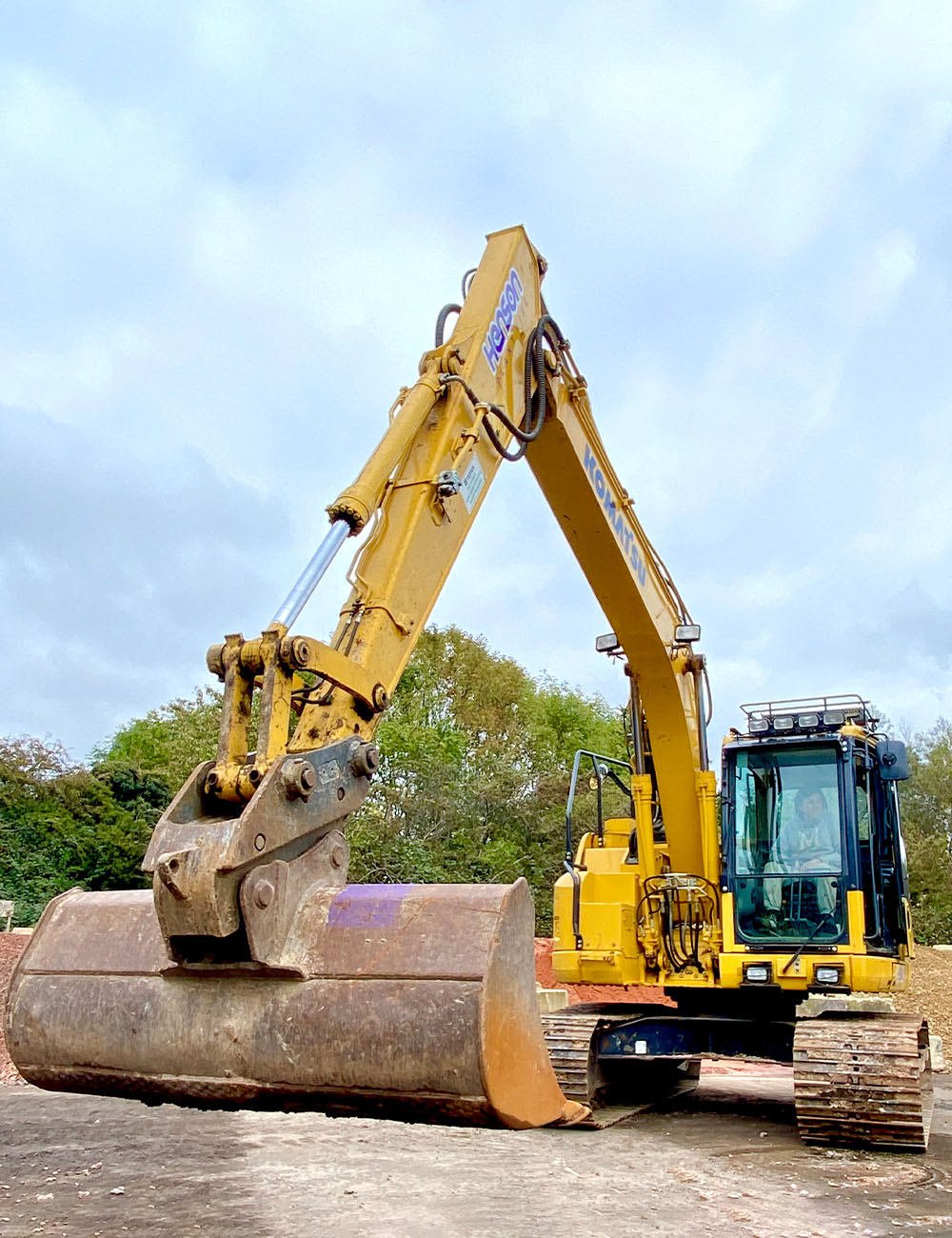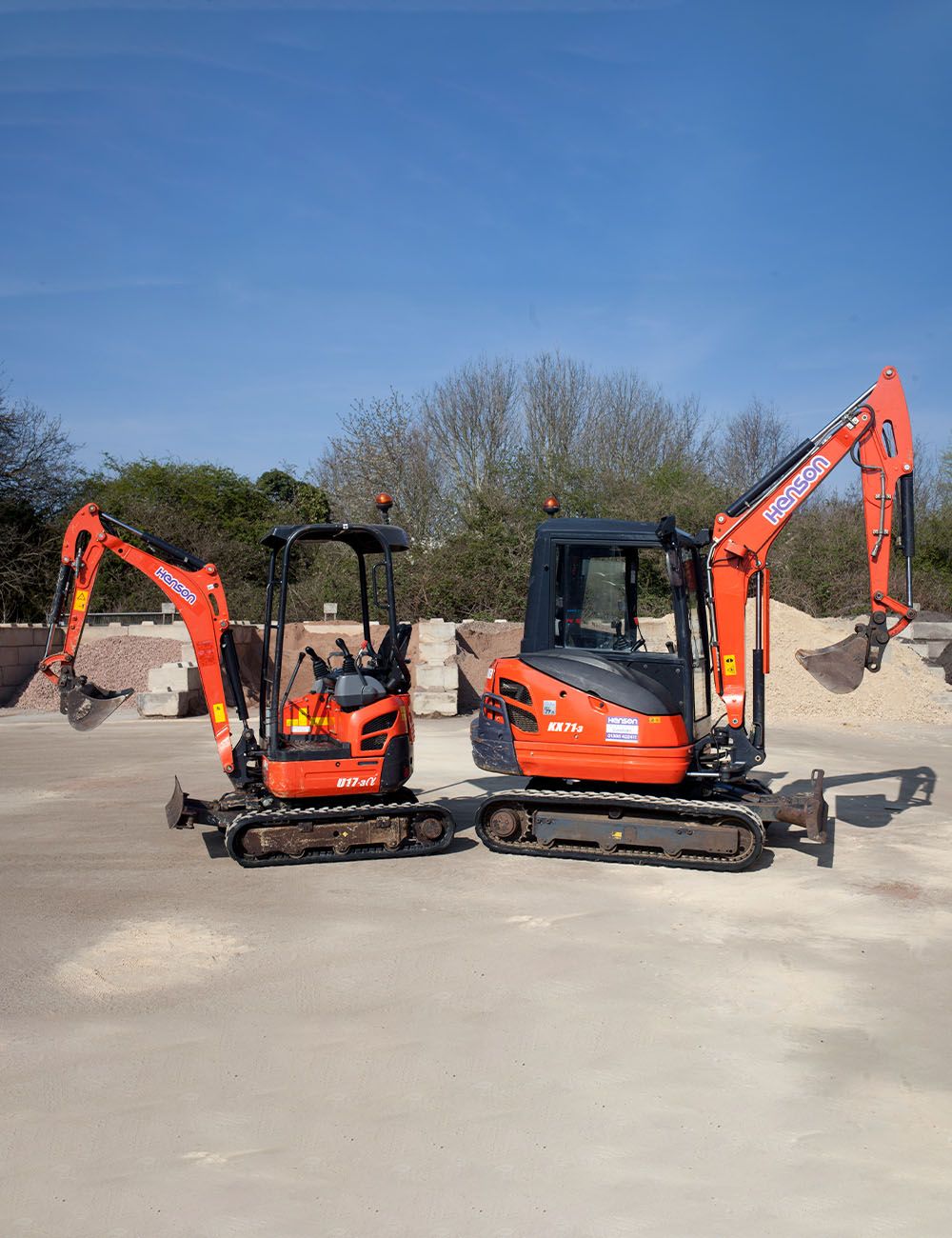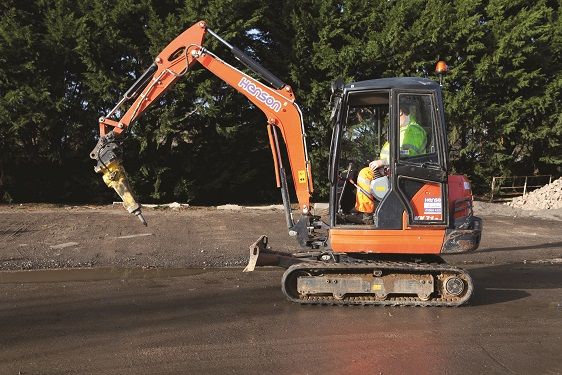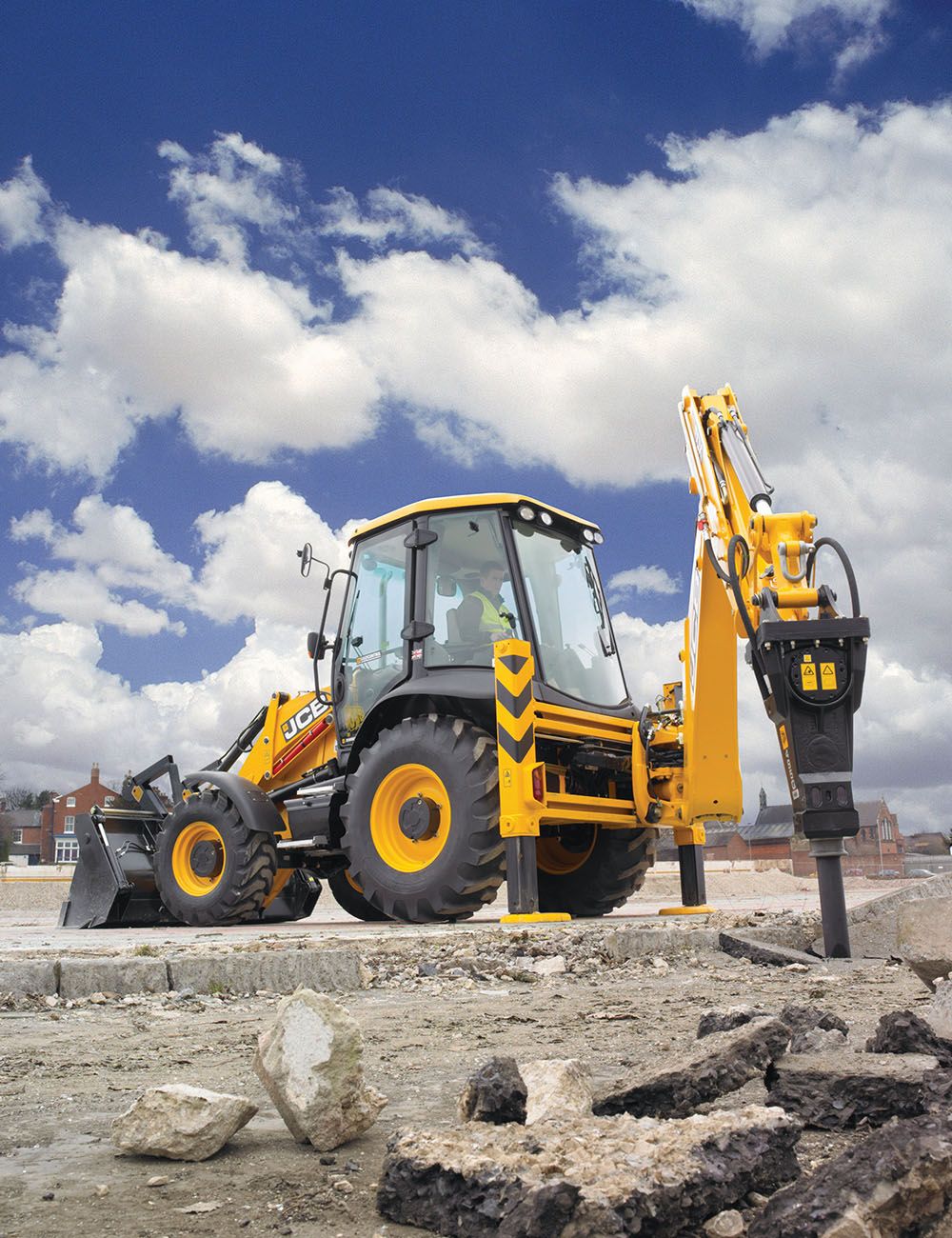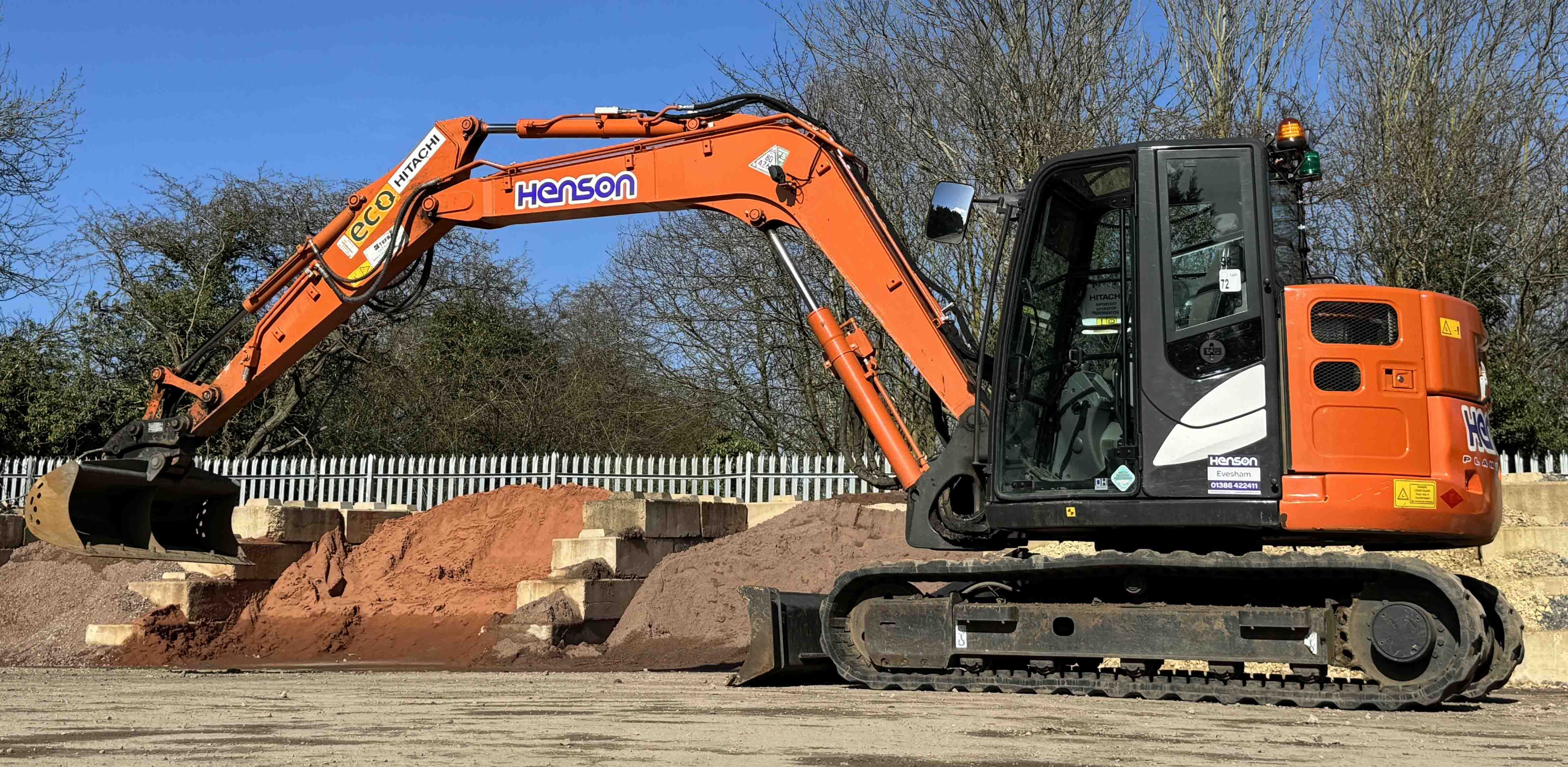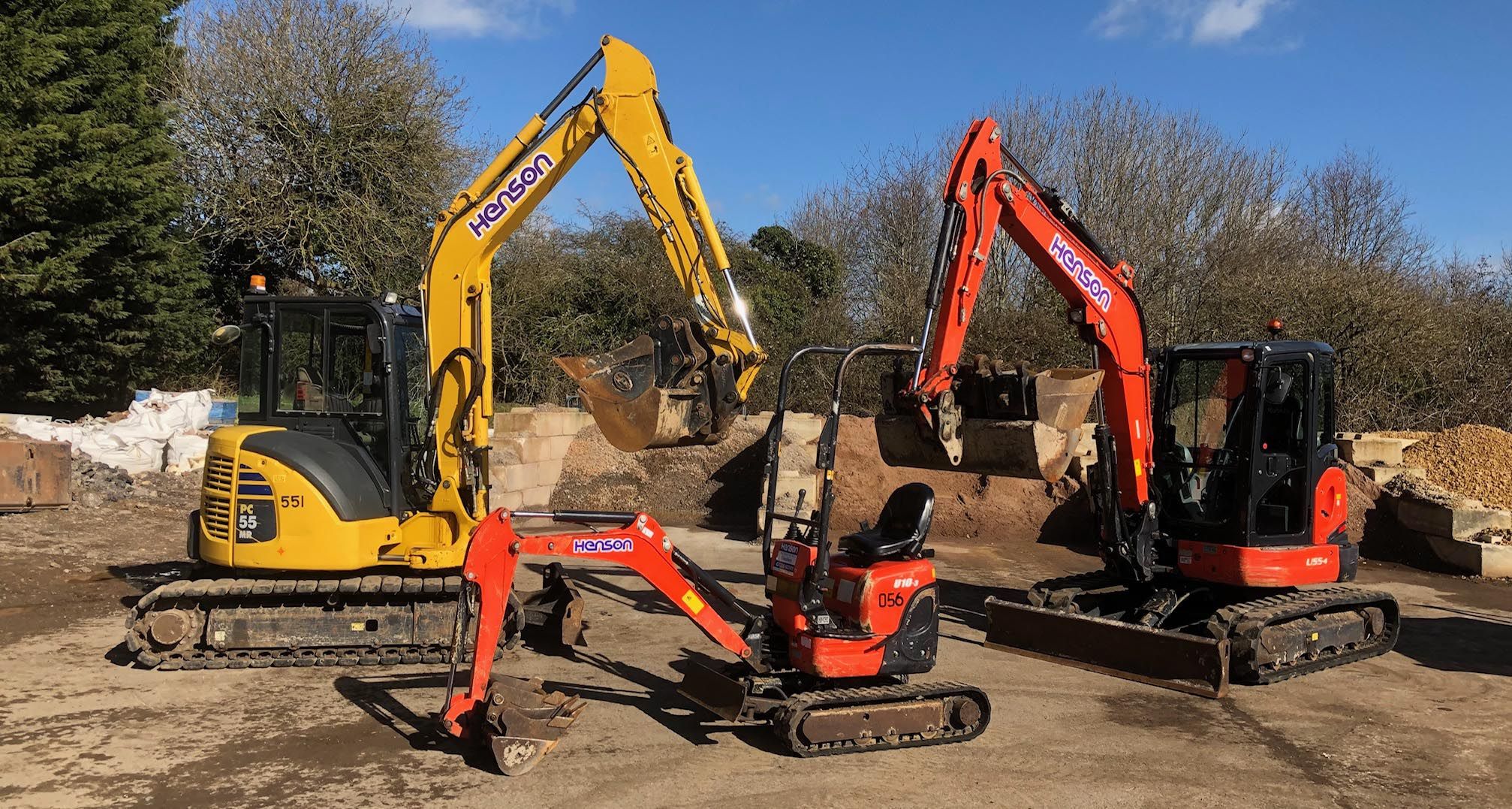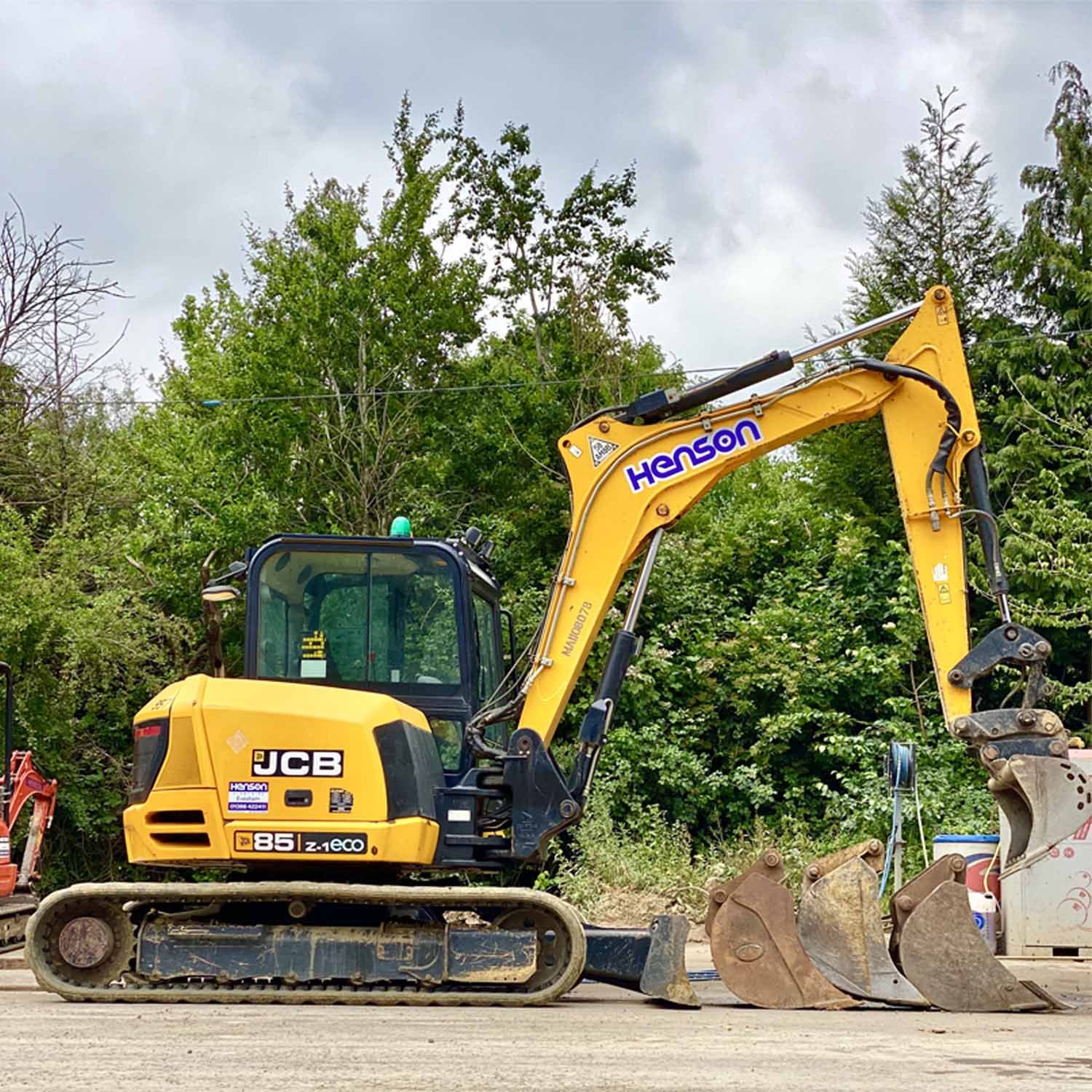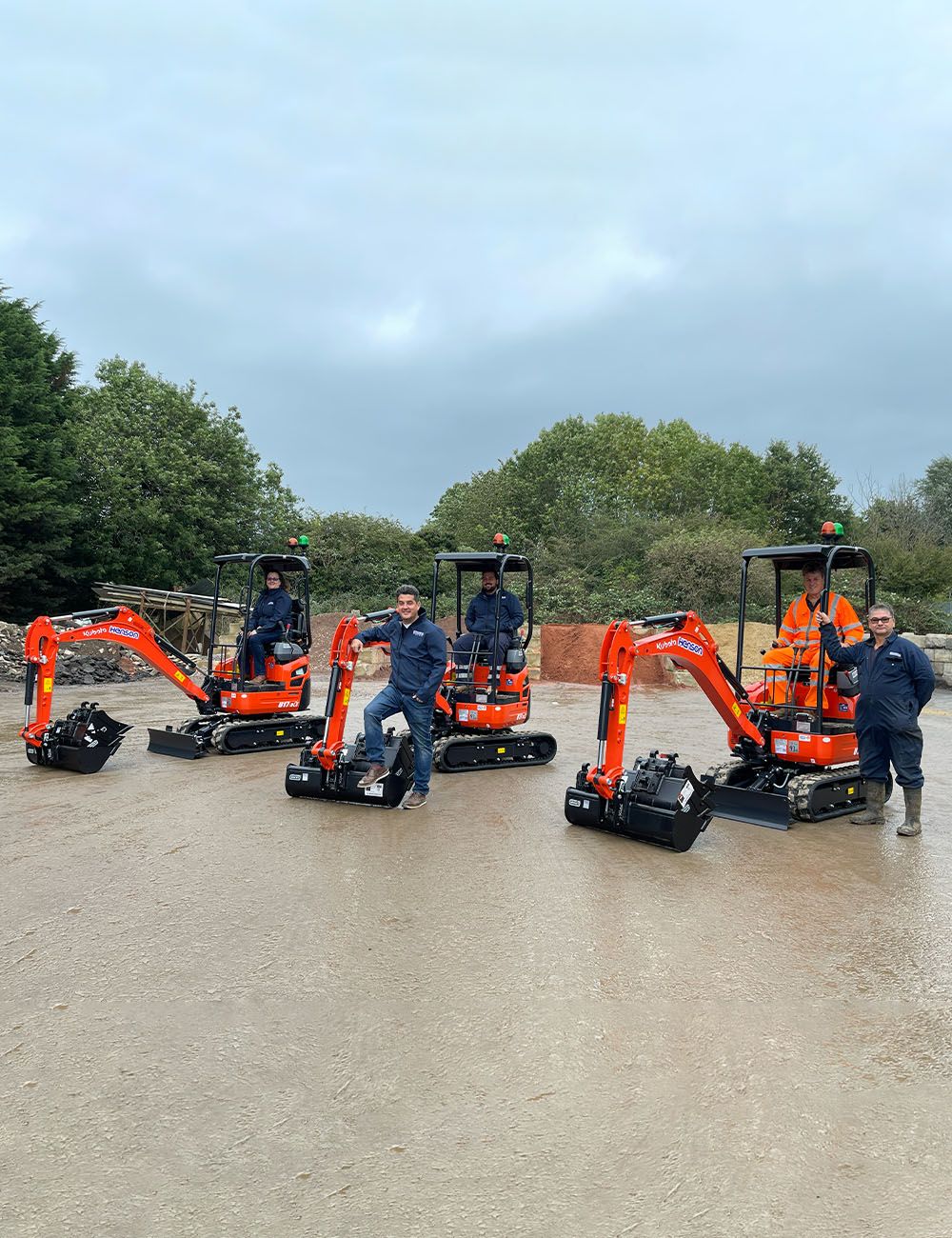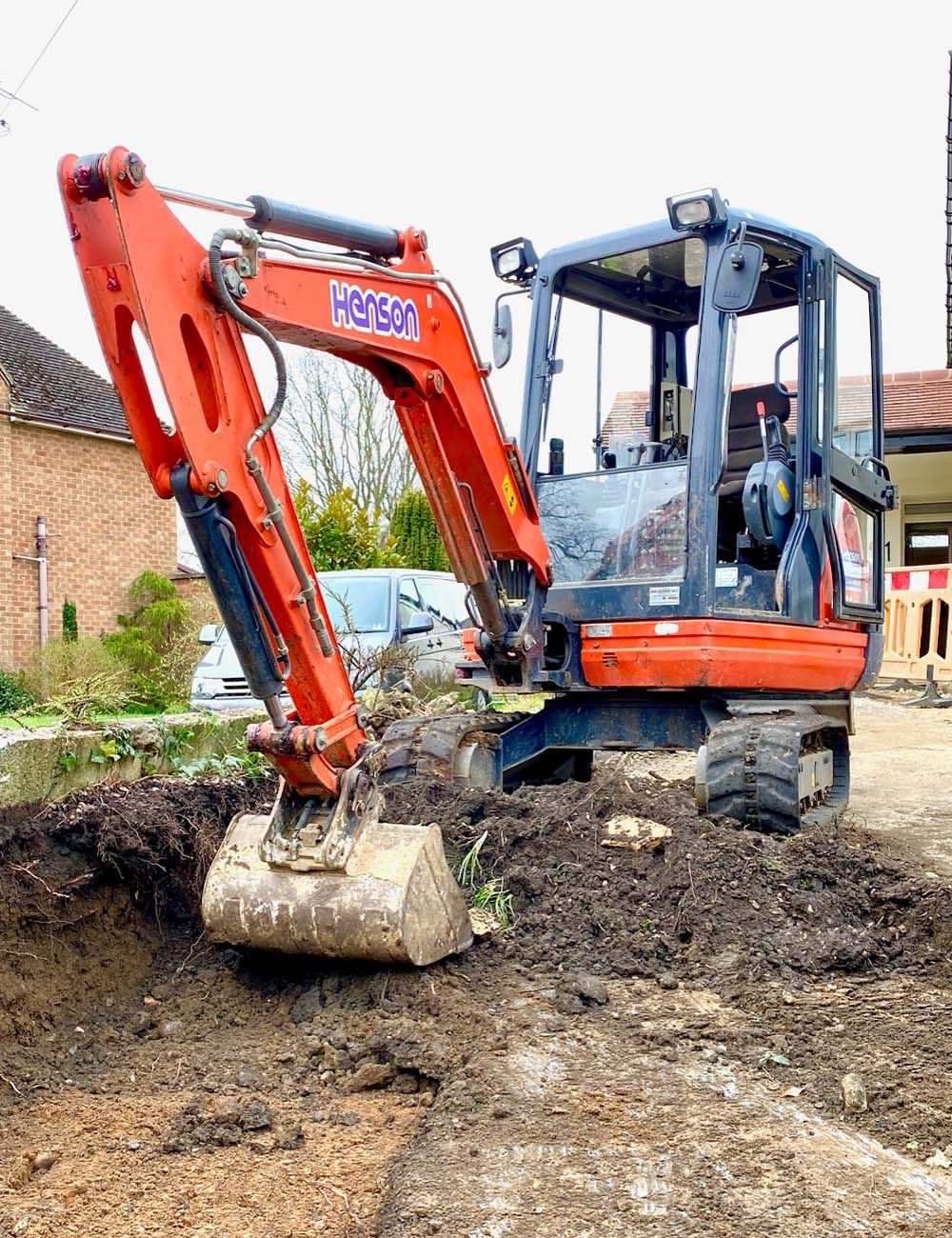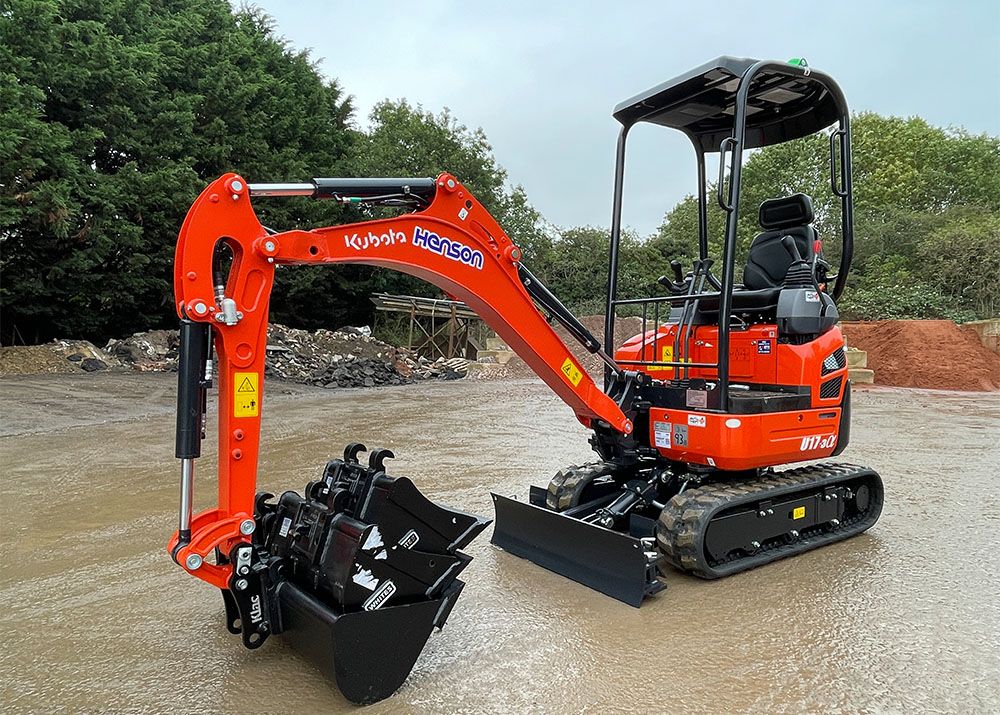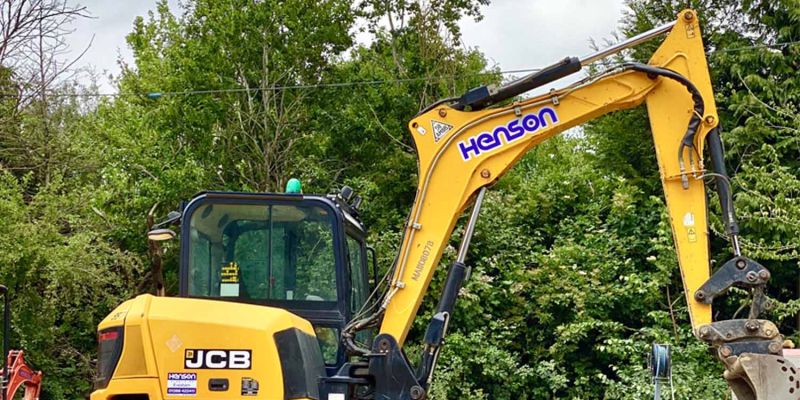
Can Anyone Hire a Digger?
Blog
When it comes to plant hire, heavy machinery is often paramount. One such essential piece of equipment is the digger, which plays a crucial role in excavating, trenching, and other earthmoving tasks. In this blog, we will delve into the world of digger hire, exploring the rules and regulations, insurance requirements, and the vast array of projects that can benefit from using diggers. Whether you're a seasoned professional or a DIY enthusiast, understanding the ins and outs of hiring a digger is essential for ensuring a successful and efficient project.
Types of Diggers
When hiring diggers, various size options are available, each suited for different types of projects. Here's a breakdown of the full range of different-sized diggers and their suitability for specific projects:
- Micro Diggers (Up to 1 ton): Ideal for small-scale projects in confined spaces, such as narrow pathways, gardens, and landscaping in residential areas.
- Mini Excavators (1 to 6 tons) are versatile and suitable for various projects, including landscaping, trenching, and light construction work. They offer good manoeuvrability and can fit into tight spaces.
- Standard Excavators (6 to 10 tons): Well-suited for medium-scale construction projects, roadworks, and utility installations. They provide increased power and digging depth compared to mini excavators.
- Large Excavators (10 tons and above) are designed for heavy-duty tasks such as major construction, earthmoving, quarrying, and large-scale excavation projects.
Each type varies in size, capacity, and suitability for different project requirements, offering flexibility and efficiency in construction and excavation operations.
Rules and Regulations
In the UK, a valid UK Driver's Licence is not required to operate a digger or excavator on private land. However, specific licensing requirements may vary based on the type of project, equipment size, and local constituency regulations. Hiring someone else to operate plant machinery may require a licence. Let's take a closer look at some rules and restrictions we have in the UK.
Operator Licensing:
In the UK, individuals typically do not require a special licence to operate a mini digger. However, competency in operating the machine is essential to ensure the property owner's contentment with one's capabilities.
- Licensing: You typically do not need a special licence to operate a digger in the UK, if you’re using it on a private land site. However, when manoeuvring diggers on public highways, a regular valid Drivers Licence is required. You can read up more about this information and why it is required on the GOV website.
- The Work Health and Safety Act helps in simplifying the use of various plant equipment by DIY workers without the need for licensing. However, the act still mandates careful consideration of specific job aspects. According to the law, it remains essential to ensure the safe and appropriate use of the equipment, falling under the categories of Responsibility and Competency.
- For all diggers, while there is no licence required, any user has to show that they are competent and knowledgeable to use it. This is also highlighted in the Provision and Work Equipment Regulations.
- Age and Ability Guidelines: There are no specific guidelines set by the Health & Safety Executive (HSE) in terms of age and ability to hire a mini digger. However, having the necessary skills and competence to operate the equipment safely is essential.
- Rental Terms: It's crucial to thoroughly review the rental terms before signing a digger rental agreement. The contract will include important details about the rental, including any specific requirements or restrictions. Certification or training may be required, but this only sometimes translates to a formal licence. Suppliers often request applicable licences and certifications when hiring equipment, so it's crucial to comply with their requirements.
Construction Plant Competence Scheme (CPCS)
The Construction Plant Competence Scheme (CPCS) provides skills cards for the plant sector within the construction and allied industries in the UK. These skills cards are designed for individuals who work with plant machinery in the construction industry, reflecting and showcasing their competence in operating such equipment.
The CPCS offers tailored skills cards and training for plant operators and testers, ensuring that individuals have the necessary competencies to operate various plant machinery on construction sites throughout the UK.
Do you need a CPCS to hire a digger?
The requirement for a Construction Plant Competence Scheme (CPCS) card to hire a digger can depend on the intended use and location. For domestic users in the UK, hiring a mini digger does not require a CPCS card or a specific licence.
However, for business or commercial usage, especially on construction sites, an NPORS (National Plant Operators Registration Scheme) or CSCS (Construction Skills Certification Scheme) card may be required to operate the machinery. The need for a licence or certification can vary based on the equipment's specific circumstances and intended use.
Environmental Regulations:
Specific environmental regulations can impact the hiring and usage of mini diggers in locations such as London. Understanding these regulations is crucial for compliance and minimising ecological impact. Some companies hire nationwide - so it is important to familiarise yourself with local rules and legislation.
According to the current emission standards for non-road mobile machinery (NRMM) in London, all small plants, including mini diggers, should adhere to standards to meet the emission standards. Additionally, particular jobs or environments may require a higher level of protection, such as wearing appropriate ear muffs or plugs for hearing protection when operating different plant-hire machinery.
Health and Safety Guidelines:
Those hiring out equipment for use at work are considered suppliers under section 6 of the Health and Safety at Work Act. Adhering to health and safety guidelines is critical for ensuring a safe working environment.
Like all plant hire solutions, we would always recommend specific safety measures when hiring equipment of this magnitude.
- Wear steel toe protection
- Wear helmets to help with safety against falling objects
- Wear the correct gloves for protection
- Take regular breaks to avoid accidents
Training and Competence:
When hiring a digger, it's important to consider the operator's competence. While formal licensing may not be required for private worksites, ensuring operator competency is crucial for safe and efficient operation.
By being mindful of these regulations and guidelines, individuals and businesses in the UK can ensure compliance with the law and safety standards when hiring and operating diggers. It's always advisable to consult local authorities and legal resources to stay informed about specific regulations in your area.
Insurance and Safety
When hiring and operating a digger, the significance of insurance coverage and safety measures cannot be overstated. Insurance plays a crucial role in protecting businesses from financial loss in accidents, theft, or damage to equipment. Moreover, compliance with industry standards and regulations ensures adequate protection.
Prioritising safety measures when operating diggers is vital for preventing workplace accidents and ensuring the well-being of employees and the public. This includes proper operator training, adhering to safety guidelines, and conducting risk assessments to identify potential hazards.
Where you can get insurance
Some plant hire firms may offer insurance for their equipment, but it's essential to be aware that this coverage can be restrictive in certain aspects. Make sure to research and find the best insurance provider for your requirements so that you're covered comprehensively. Any good provider will explain the purpose of plant hire insurance, covering costs of plant hire charge while the plant is replaced or repaired. There is no legal requirement to take out plant insurance unless specified in the terms and conditions of the hire agreement, but it will give you peace of mind should anything go wrong.
By implementing robust safety protocols and securing appropriate insurance, companies can mitigate risks, protect their assets, and promote a culture of safety in the workplace. Insurance coverage and safety measures play a pivotal role in hiring and operating diggers, particularly within the grading, excavation, and construction industries. It's crucial to recognise the following key points:
Risk Mitigation:
Digger insurance protects businesses from financial loss from accidents, theft, or equipment damage. Compliance with industry standards is vital, ensuring companies operate within legal and regulatory frameworks.
Liability Protection:
General liability insurance is often mandatory for excavation businesses, providing essential protection and coverage. This is vital for safeguarding companies' financial interests and ensuring compliance with legal requirements.
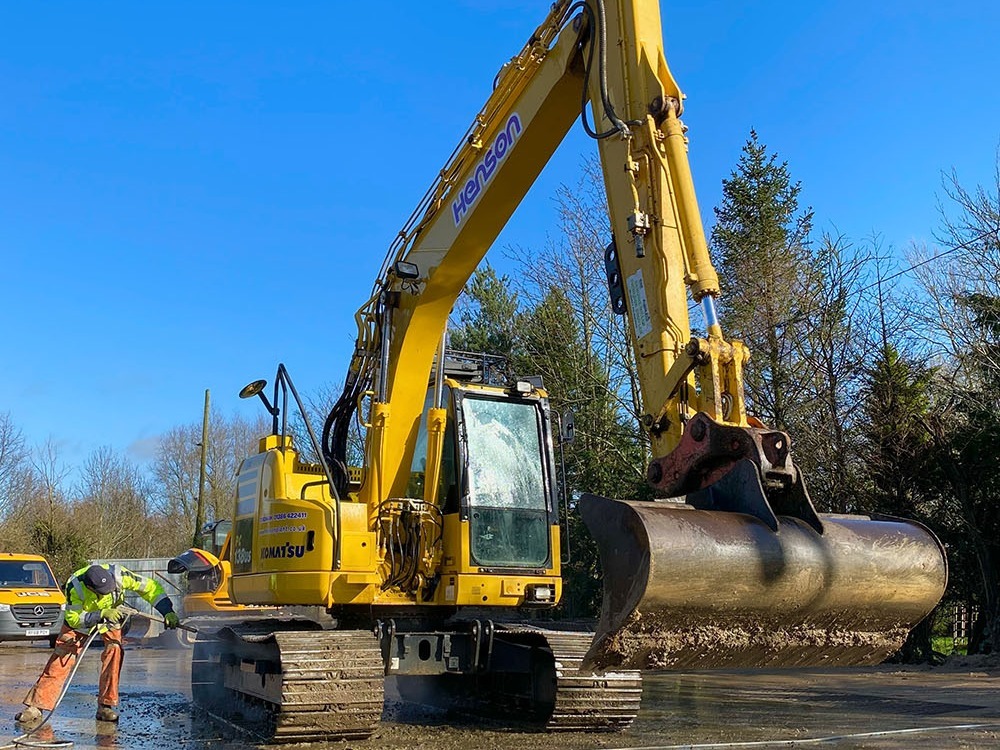
Operational Safety:
Prioritising safety measures, including employee training, risk assessments, and adherence to safety guidelines, is fundamental in preventing workplace accidents and fostering a secure working environment.
This can be done by completing a CPCS (mentioned above) or by taking courses and reading information on the importance of health and safety with heavy machinery.
Public Safety:
Safety efforts protect workers and the public, emphasising the need for comprehensive risk management to mitigate potential hazards on and off the job site.
By appreciating the importance of insurance coverage and safety measures, businesses can proactively manage risks, protect their assets, and uphold safety standards in the excavation and construction sectors.
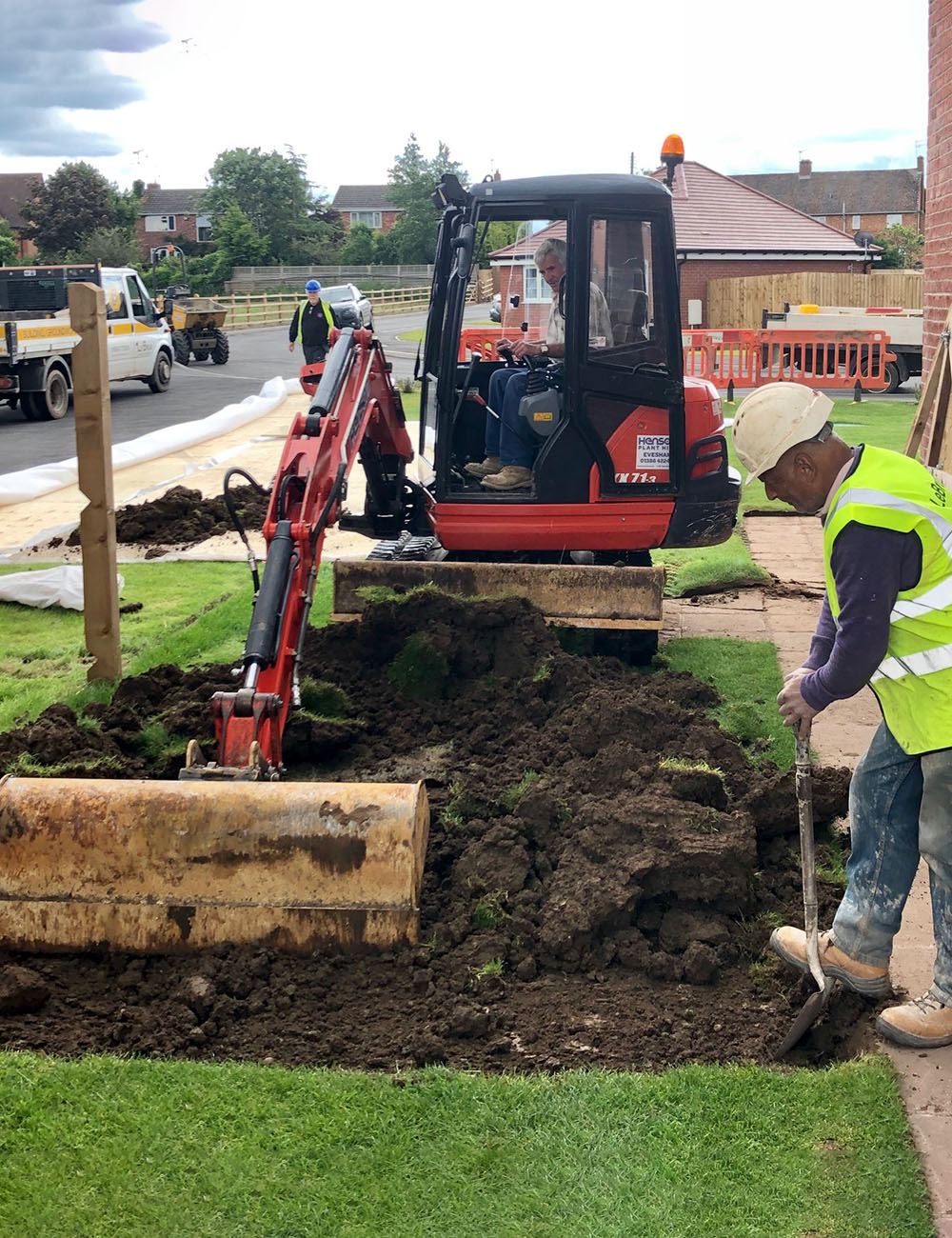
Typical Projects
Hiring a digger is essential for various projects across different industries. From site excavation and foundation digging to utility installation and road construction, diggers play a pivotal role in shaping the built environment. Their versatility extends to landscaping, demolition, mining operations, and forestry tasks. Let's look at the comprehensive range of projects they're used for.
- Landscaping: Diggers are utilised for tasks such as land clearing, grading, and digging foundations for features like ponds, paths, and retaining walls.
- Excavation: This encompasses many projects, including site preparation for construction, building foundations, and digging trenches for utilities or drainage systems.
- Trenching: Diggers are commonly employed to dig trenches for laying pipelines, cables, or conduits for electrical, plumbing, or telecommunications services.
- Demolition: Diggers are crucial in demolishing structures, breaking up concrete, and clearing debris from construction sites.
- Earthmoving: Projects involving moving large quantities of soil or aggregate, such as creating barriers, levelling ground, or building roads, frequently require the use of diggers.
- Drainage: Diggers are instrumental in excavating for stormwater management, constructing soakaways, and installing drainage systems to manage surface water.
- Utility Installation: Diggers are used to create trenches for installing utilities such as water mains, sewer lines, and gas pipes.
- Pond and Pool Construction: Excavating for the creation of ponds, lakes, swimming pools, and other water features is another common application for diggers.
Final thoughts
Hiring a digger offers a wide range of options in terms of size and suitability for different projects. Micro diggers are perfect for small-scale and confined-space projects, while mini excavators are versatile and suitable for a wide array of tasks. Standard excavators cater to medium-scale construction projects, and large excavators are designed for heavy-duty tasks.
The accessibility of hiring a digger has increased significantly, with various rental companies offering these machines for different service durations. This ease of accessibility allows customers and companies to find the right digger for their projects, ensuring efficiency, cost-effectiveness, and safety.
If you'd like to find out more about our extensive range of equipment here at Henson Plant Hire, you can check out our plant hire page. For any other queries about timescales, nationwide delivery options or just general questions, please do not hesitate to contact us.
Articles
